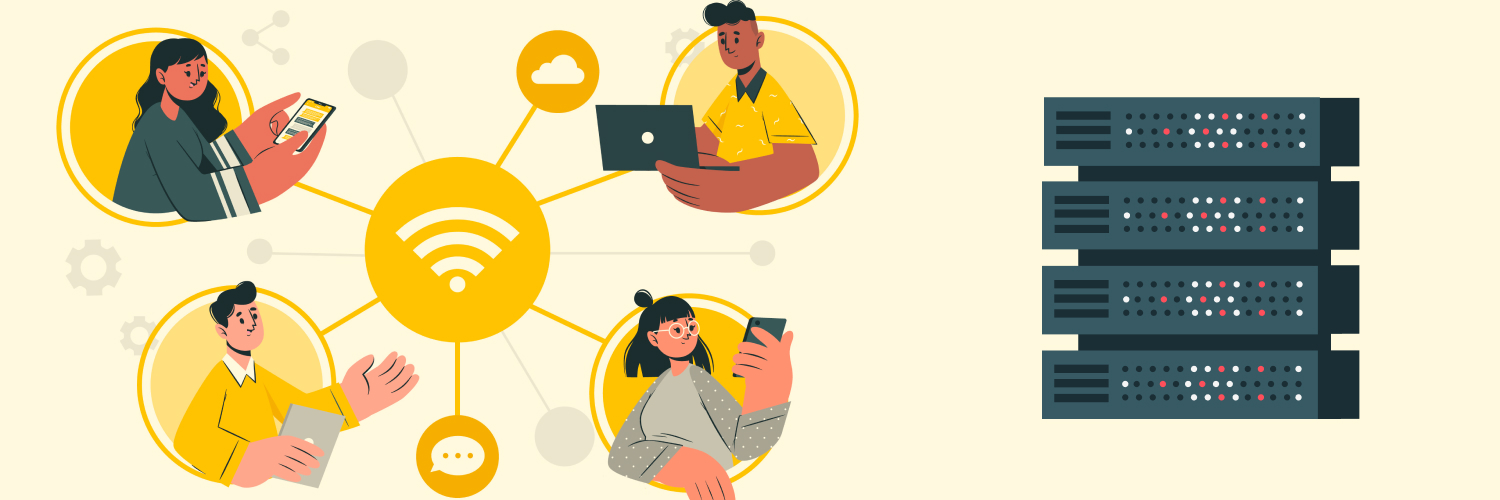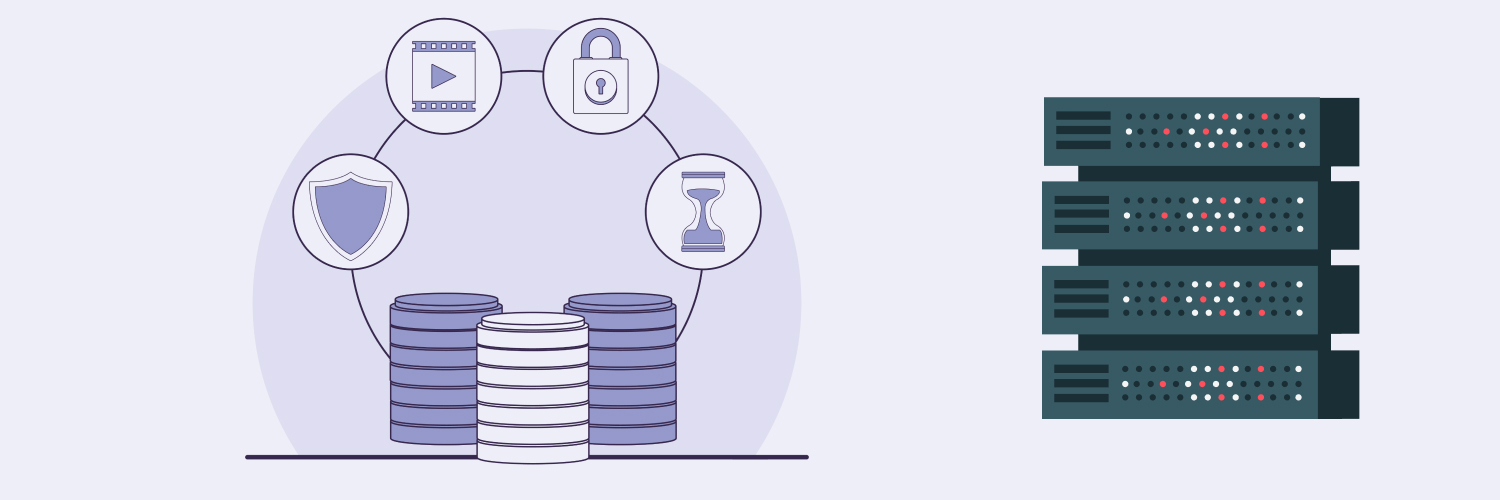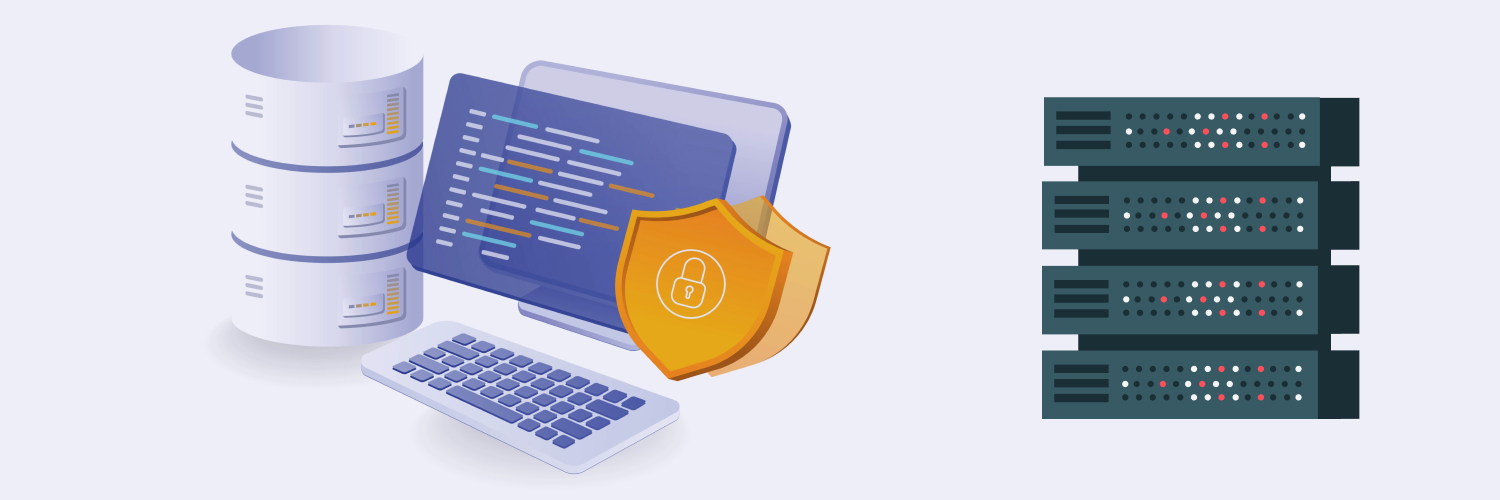4 Effective Ways To Protect Your Company’s Sensitive Data
In our current digital age, a whole lot of data is collected, stored, and shared by businesses daily. Such data has the potential of causing severe harm to individuals or organizations as a whole if they get into the wrong hands.
While data can be physical or digital, in this article we’ll focus on digital sensitive data and talk about some of the most effective ways of protecting such data. Let’s start by examining the dire consequences of sensitive data leaks and why protecting such data is so crucial to your company’s success.
Looking for something in particular? Scroll through the table of contents to find it and jump to that section of the article.
What are the Consequences of Sensitive Data Exposure?

To begin, we must ask ourselves the question: “What is sensitive data?” In simple terms, sensitive data is information that must remain private and inaccessible to people that have no permission to view it. From the government to private companies and hospitals, this kind of data exists across a wide range of institutions.
A data breach leading to sensitive data exposure can have detrimental effects on individuals, organizations, and even nations as a whole. Leakage of an individual’s data puts that person at risk of identity theft, cyber-attacks, and other nefarious activities.
For businesses, the potential consequences of sensitive information exposure are as varied as they are severe. Your customers share sensitive information with you and expect you to take the necessary steps to protect it. As such, one of the biggest impacts of sensitive information leakage is a loss of the trust of your customers – without customer trust, your business is bound to fail.
Leakage of sensitive information can deal a fatal blow to your company’s reputation and could lead to legal ramifications and serious financial loss. You might end up having to compensate customers and other involved parties with millions of dollars as was clearly demonstrated by the Home Depot breach in 2014.
Exposure of sensitive information such as trade secrets and intellectual property can also negatively affect your company if it ends up in a competitor’s hands. Before we delve into how to avoid these consequences, let’s discuss the various classifications of sensitive data.
Types of Sensitive Data

If data can be sensitive, then there must be varying grades of sensitivity. Not all types of sensitive information have the same potential for damage. This concept is referred to as data sensitivity. Sensitive information is most commonly classified into different groups based on this.
Data sensitivity refers to how sensitive a particular piece of information is or how severely it will affect a particular organization if it were exposed. To figure out the sensitivity of specific data, you have to consider how losing the confidentiality, integrity, and availability – the CIA Triad – of that piece of information can affect your company. Based on data sensitivity, there are four types of sensitive data:
- Low sensitivity: Exposure of this type of data poses little to no risk to the individuals or agencies concerned. It is freely accessible and available to the public. Examples include routine business information given to customers, journal articles, names and contacts on directories, etc.
- Moderate sensitivity: This type of data is also sometimes referred to as institution classified. It refers to data that is kept private as a result of contractual agreements between two or more parties. Exposure of such data usually causes minimal damage as only the parties involved are likely to get affected. Some examples are intellectual properties, organizational charts, and marketing campaign outlines.
- High sensitivity: Also referred to as confidential data, this type of data can lead to serious damage if exposed. Examples are social security numbers, personal details, and health information.
- Restricted: This refers to information of very high sensitivity that is kept safe via Non-Disclosure Agreements. This includes data such as credit card details and trade secrets. Leakage of such information can gravely affect individuals, companies, and even entire nations.
4 Ways to Ensure Sensitive Data Protection

With the information provided above, you should be able to classify the various types of data received and produced by your business based on sensitivity. Taking the time to do this is a crucial step in improving data security. That is because, although your data protection practices should generally be strong, highly sensitive information should receive more focus and protection than less sensitive information. Here are a few ways to improve your company’s data security:
1. Assess security regularly
Regularly examining your security system to find flaws and opportunities for improvement is crucial. Technology is rapidly evolving and, to protect your company and your customers, you need to follow suit. You must endeavor to stay up to date on the latest advancements in cybersecurity and apply them to your business. Criminals that mine for data are always on the lookout for low-security and out-of-date systems.
Also, always be aware of the flow of information in your company. Take inventory of who has access to what information, who handles sensitive information, and where it is stored. This knowledge is necessary for detecting weaknesses in your security system and uncovering cybersecurity risks.
2. Educate your employees
To effectively protect sensitive information in your company, you must train your staff to understand the massive impact of data breaches and the significance of data protection. Create security policies to guide staff while they work and train them on how to properly implement those policies on a day-to-day basis. For instance, you can make it a policy that members of staff must always encrypt sensitive files when sending them to other employees.
3. Properly dispose of unnecessary data
Just like sensitive physical files are shredded when they are no longer useful, digital files must be disposed of in such a way that unauthorized parties will not be able to restore the information at a later time. Whenever you have to dispose of data – e.g. when the need to purge an inactive count arises – it is important to do so safely. Using software dedicated to data disposal is a great way to do this.
4. Use a Proxy
Using a proxy is one of the best ways to maintain protection and security in and outside the workplace. Remote work has become a common practice for organizations all over the world. And, most companies give their employees take-home devices such as tablets and laptops to enable them to work no matter where they are or what time it is. This has led to a situation in which employees carry sensitive information outside of the workplace and to their homes.
If they do not have access to a secure internet connection, once they connect their devices to the internet, your company’s data is at risk of being exposed. Using a proxy greatly reduces this risk and is something you should consider adding to your company’s data security protocol. Below is a more detailed explanation of why.
How Does a Sensitive Data Proxy Work?

IP addresses are unique sets of letters and numbers that help identify devices connected to the internet. IP addresses are commonly hacked and securing them should be a major part of your data protection strategy. Using a proxy is one of the best ways to go about doing this. A proxy masks your IP address and serves as a barrier between you and the internet.
When you use a proxy IP address, all the communication between your device and the website you access is done via that address. This keeps your device’s IP address hidden and safe. As such, adding the use of proxies to your company’s security policy ensures that your company has an extra layer of protection whenever a company device is connected to the internet.
Apart from this added security, there are several other benefits of using a proxy:
- Faster network speed: If your company has to constantly handle massive chunks of data, a proxy can make the process faster and more seamless. This is more likely to be the case if you are using a proxy IP address dedicated to you or just a few users.
- Avoiding geoblocks: If your company is a multi-national one with offices all around the globe, or if your business depends on remote workers from other countries, proxies can be especially useful. For instance, your employees in a particular country may need to carry out tasks on websites that are blocked in their country of residence. Using a Proxy IP address from another location, they can obtain access and get the job done.
If you are wondering about how to protect sensitive data with a proxy, the first and most crucial step is finding a good proxy provider.
Finding the Best Proxy Providers for Sensitive Data Security

Back in the day, the topic of proxies was shrouded in darkness and generally associated with sketchy activity. Now, the legitimate uses of proxies are better known and there are several companies offering proxy services available for you to choose from.
There are free and paid options available. But, if you take your business’s security seriously, it is best to invest in a reputable paid proxy service provider. Free proxy IP addresses tend to be used by many people at the same time. This renders them unsafe because of the possibility of bad actors using this opportunity to hack and wreak havoc. This nullifies the entire purpose of getting a proxy to secure sensitive information, doesn’t it?
At Rayobyte, your data’s security is as important to us as it is to you, and we work tirelessly to ensure it. Whatever your business’s security needs are, we have various options to meet them. Our Cooperate Plan gives you access to 1,000 – 4,999 proxies and our Enterprise Plan gives you 5,000 or more proxies to use. Each of these plans has the option of being dedicated, semi-dedicated, or rotating.
With dedicated proxies, you are the only one that has access to a particular IP address. With semi-dedicated proxies, on the other hand, you have to share a proxy IP address with a few other users. This is a good option if you need to cut down on cost. Rotating proxies switch between IP addresses as often as you would like. They offer the highest level of anonymity.
In addition to providing you with high-quality and safe proxy IP addresses, we offer you unlimited bandwidth and guarantee fast network speeds. Members of our customer care team are available around-the-clock to answer any questions you might have and provide you with assistance whenever it is needed. Contact us today to learn more.
Final Words
A sensitive data leak can have detrimental effects on you, your company, and your employees. Having airtight and up-to-date security protocols is a must to prevent this from happening. Using a proxy as part of that protocol is one of the best ways to strengthen any policies you put in place. In addition to this, using a proxy gives you many other benefits that will allow your employees to work faster and smarter.
The information contained within this article, including information posted by official staff, guest-submitted material, message board postings, or other third-party material is presented solely for the purposes of education and furtherance of the knowledge of the reader. All trademarks used in this publication are hereby acknowledged as the property of their respective owners.





